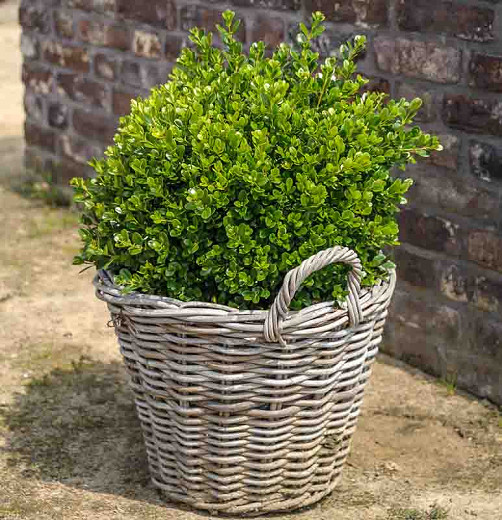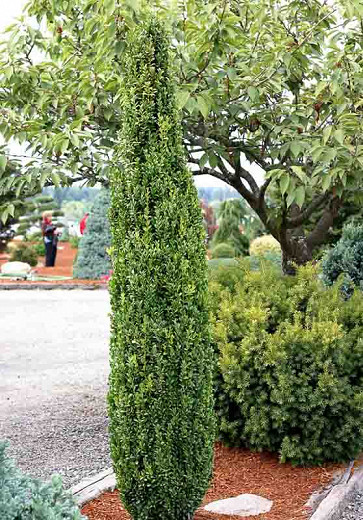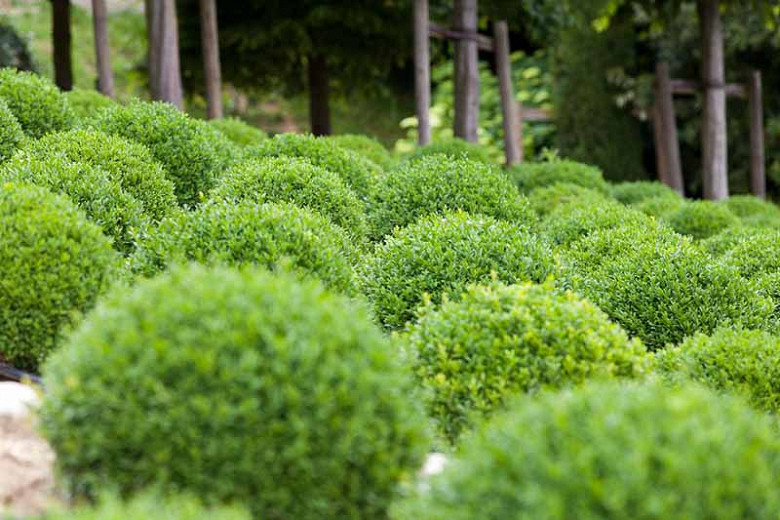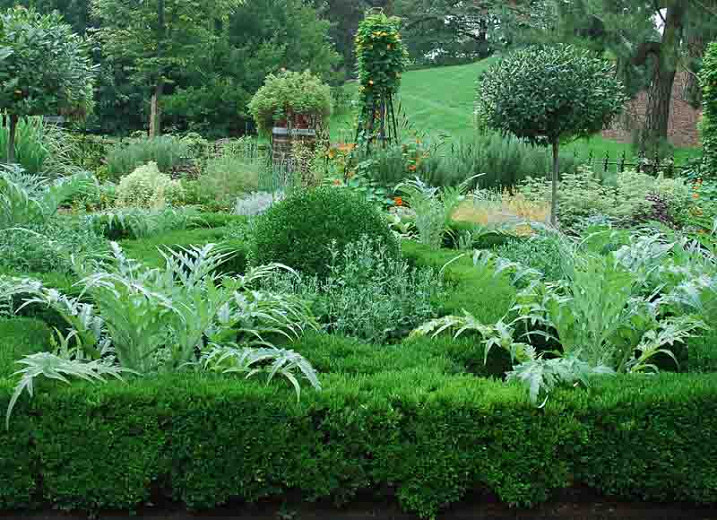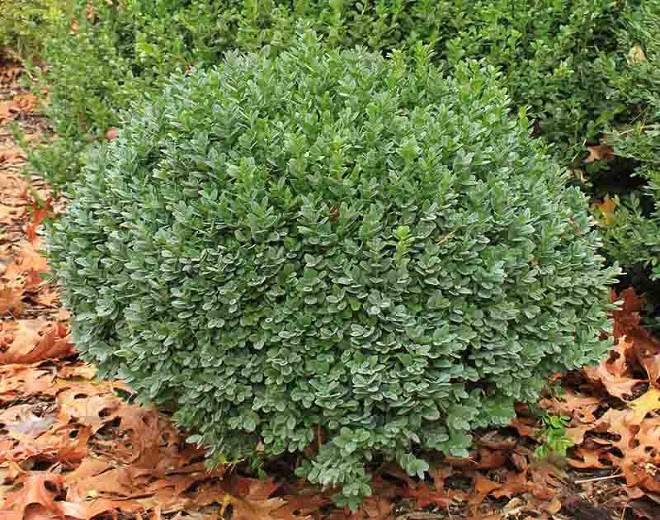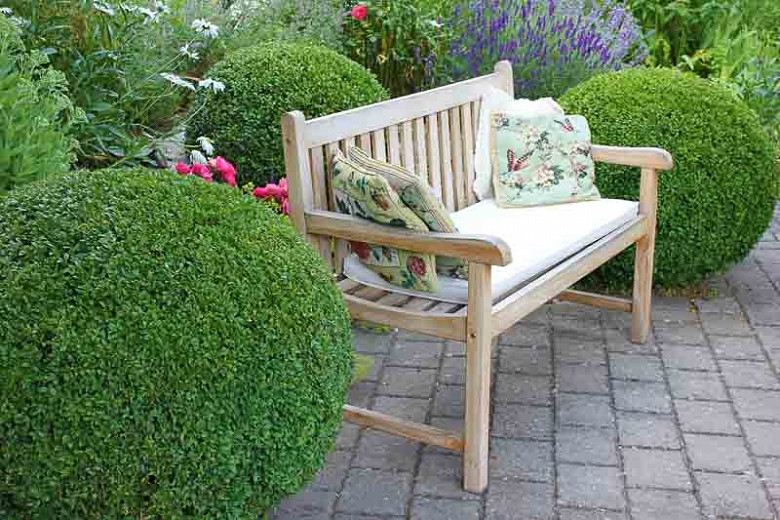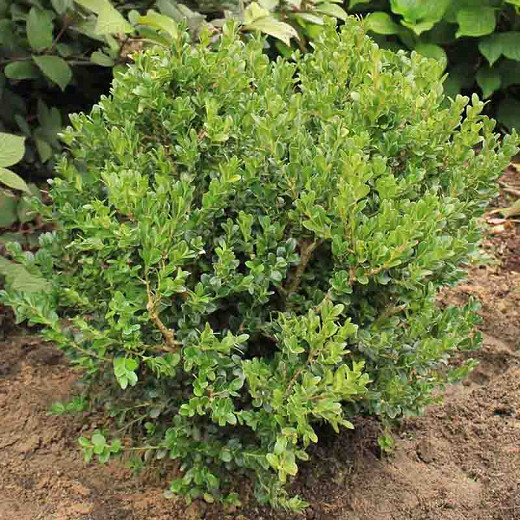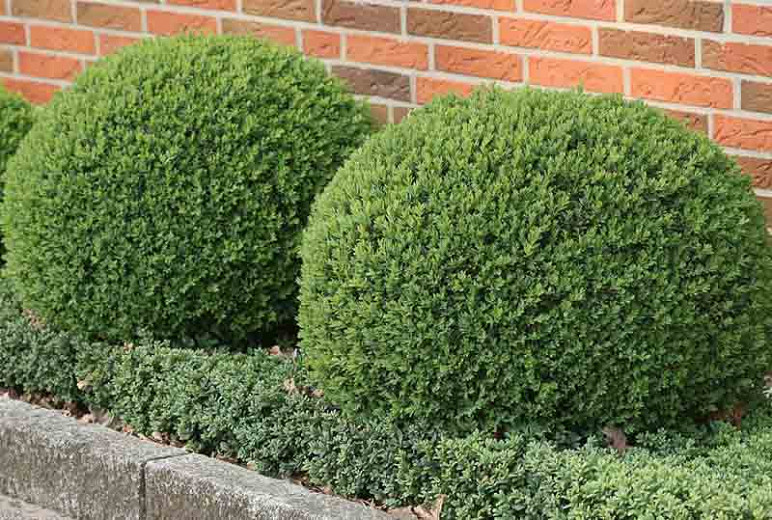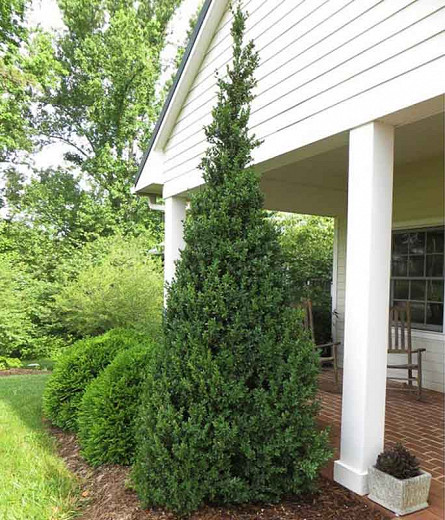Buxus microphylla Faulkner (Small-Leaved Boxwood)
Award-winning Buxus microphylla ‘Faulkner’ (Small-Leaved Boxwood) is a dense, compact, evergreen shrub with a lush foliage of small, rounded, dark bluish green, glossy leaves. The foliage retains its rich color most of the year, becoming bronze-tinged in cold winter weather.
Award-winning Buxus microphylla 'Faulkner' (Small-Leaved Boxwood) is a dense, compact, evergreen shrub with a lush foliage of small, rounded, dark bluish green, glossy leaves. The foliage retains its rich color most of the year, becoming bronze-tinged in cold winter weather. Tough, hardy and easy to grow, this Boxwood provides color year-round, as well as form, texture and contrast to its companion plants. Slow-growing, it is ideal for shaping and particularly well suited to topiaries, including ball or cone forms.
- Recipient of the prestigious Award of Garden Merit of the Royal Horticultural Society.
- Typically grows up to 4 ft. tall (120 cm) and 3 ft. wide (90 cm).
- Thrives in part shade in evenly moist, well-drained soils. While full shade is tolerated, the plant will not be as vigorous and its foliage not as dense. Full sun exposure may scorch the foliage. Boxwood can grow in a variety of soils as long as there is not too much sand or too much clay. Mulch should be added to reduce water evaporation and maintain moisture. While drought tolerant, Boxwood should always be watered during drought periods.
- Best sited in locations sheltered from strong winds, with, if possible, some protection from the full winter sun.
- Very versatile, this plant is perfect for beds, borders, containers, formal gardens, Mediterranean gardens.
- Keep an eye out for box sucker, mussel scale, box red spider mite, leaf spot and box blight. Deer and rabbit resistant!
- This plant grows slowly, so shear if desired. Pruning should occur after the last spring frost date, to avoid the new growth to be damaged or killed. Promote air circulation via removal of dead branches or thinning. Avoid cultivating around this plant because it has shallow roots.
- Fall is the best time for boxwood planting and mulching, while winter is the ideal time for pruning, thinning, and protection.
- Propagate from semi-hardwood cuttings.
- Toxic to dogs, toxic to cats, toxic to horses.
Requirements
| Hardiness | 6 – 9 |
|---|---|
| Heat Zones | 6 – 9 |
| Climate Zones | 3, 3B, 4, 5, 6, 7, 8, 9, 10, 11, 12, 13, 14, 15, 16, 17, 18, 19, 20, 21, 22, 23, 24 |
| Plant Type | Shrubs |
| Plant Family | Buxus – Boxwood |
| Exposure | Full Sun, Partial Sun, Shade |
| Season of Interest | Spring (Early,Mid,Late)Summer (Early,Mid,Late)FallWinter |
| Height | 3' – 4' (90cm – 120cm) |
| Spread | 2' – 3' (60cm – 90cm) |
| Spacing | 36″ (90cm) |
| Water Needs | Average |
| Maintenance | Low |
| Soil Type | Chalk, Clay, Loam, Sand |
| Soil pH | Acid, Alkaline, Neutral |
| Soil Drainage | Moist but Well-Drained, Well-Drained |
| Characteristics | Plant of Merit, Showy, Evergreen |
| Native Plants | United Kingdom |
| Tolerance | Deer, Drought, Rabbit |
| Garden Uses | Beds and Borders, Hedges and Screens, Patio and Containers |
| Garden Styles | City and Courtyard, Formal Garden, Mediterranean Garden, Modern Garden |
